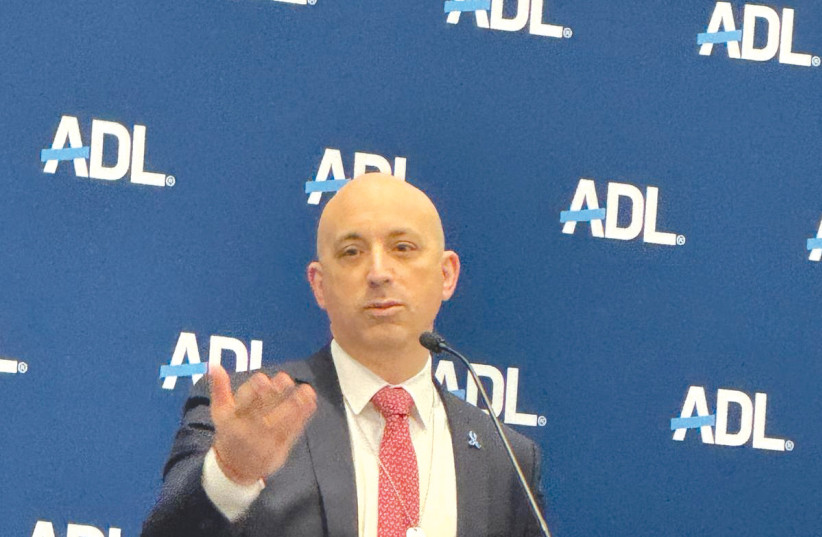The recent surge in antisemitism demands a new approach. In a recent op-ed co-authored with David Bernstein and Fern Oppenheim with the eJP (eJewish Philanthropy) news resource, we argued that the attempts of Jewish communities to engage the “middle ground” on Israel and antisemitism have failed. Meanwhile, pro-Hamas groups have successfully aligned with Progressives, using concepts like Critical Race Theory (CRT); Diversity, Equity, and Inclusion (DEI); and intersectionality to frame Jews and Israel as white and colonial.
This framing has made supporting Hamas oddly relevant to many, turning anti-Israel sentiment into a progressive symbol. These protests often mask a deeper target: the social power structure, perceived as rooted in white institutional racism. The key lies in reframing antisemitism not as a Jewish problem, but as an American problem that undermines core American values.
The battle against contemporary antisemitism is, at its core, a battle of ideas. It requires a shared understanding of the challenge and a proactive approach to turn this understanding into an operational framework. We can learn from the evolution of theories associated with CRT, which began as academic concepts and became organizing principles in many social and political movements, including pro-Hamas groups.

As these concepts gained attention outside academia, they were simplified to reach a broader audience. Social media played a crucial role in spreading these ideas, often in distilled forms. Social justice movements incorporated these concepts into their rhetoric and strategies. Corporations and institutions implemented DEI initiatives, often in response to public pressure. Finally, these concepts entered mainstream political discourse, becoming rallying points for many.
American values
Intersectionality, in particular, became a key organizing principle, encouraging activists to consider how different forms of oppression intersect and compound. These concepts led to a reframing of many social issues. However, problems arose when noble ideas aimed at fixing structural bias became the goal of purist and total activism, seeking to collapse social order and the core values it is based on, thereby catalyzing other forms of bias and discrimination, including antisemitism.
In the name of the “industry” of CRT, core American values are being challenged, including the rule of law (“defund the police”), meritocracy and hard work (in the name of diversity at all costs), tolerance (cancel culture), and even patriotism (supporting Bin Laden’s letters to America).
Israel and Jewish communities failed to make inroads with the middle ground because they were unable to create relevant frameworks, unlike pro-Hamas supporters. We lost in the competition for relevance but not in being the majority, as polls show that basic support for Israel remains. So the potential to generate relevance still exists.
We need to transform the idea of rebuilding the center based on core values from theory into organizing logic. A relevant strategy would articulate core American values in accessible language; use social media to spread these ideas widely; engage with other sections and minorities in American society based on “counter-intersectionality,” a framework that draws parallels between different kinds of bias and prejudice that result from the current woke framework; develop frameworks for understanding progressive antisemitism through the lens of threats to shared American values; promote implementation in corporations and institutions; and introduce these values into mainstream political discourse.
Tackling the rise of antisemitism in America requires Jewish communities to reframe the issue, build broad coalitions, and engage in a battle of ideas, complemented by extensive community relations efforts and activism. By presenting antisemitism as an American problem that threatens shared values, the Jewish community can mobilize a diverse array of allies and rebuild a strong, inclusive center in American society.
This is not just a fight for Jewish Americans – it’s a fight for the soul of America itself and of Western democracies at large. The time has come for a united front against the agents of chaos from both the extreme Left and Right, based on shared values that have long been the bedrock of a diverse and democratic society.
Eran Shayshon is founder and CEO of Atchalta, and Dor Lasker is deputy CEO. Learn more at www.atchalta.com.
